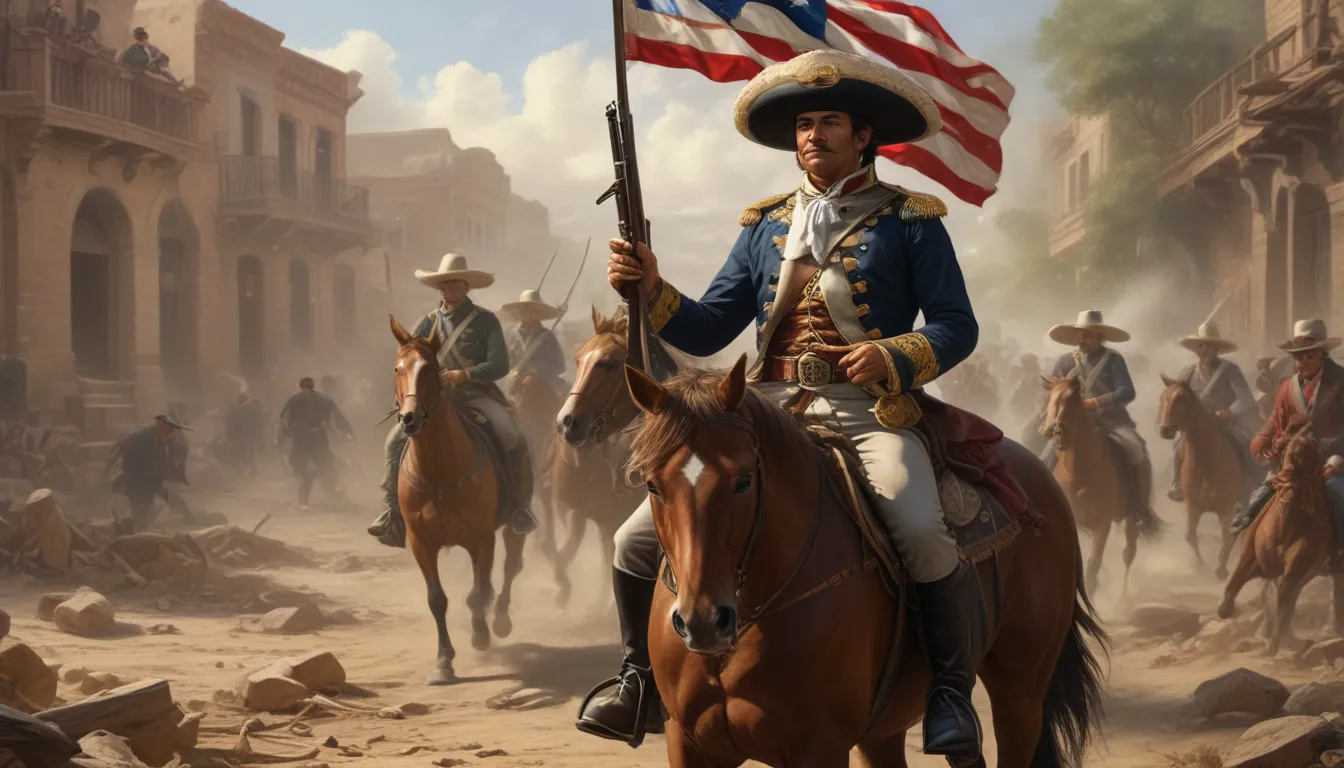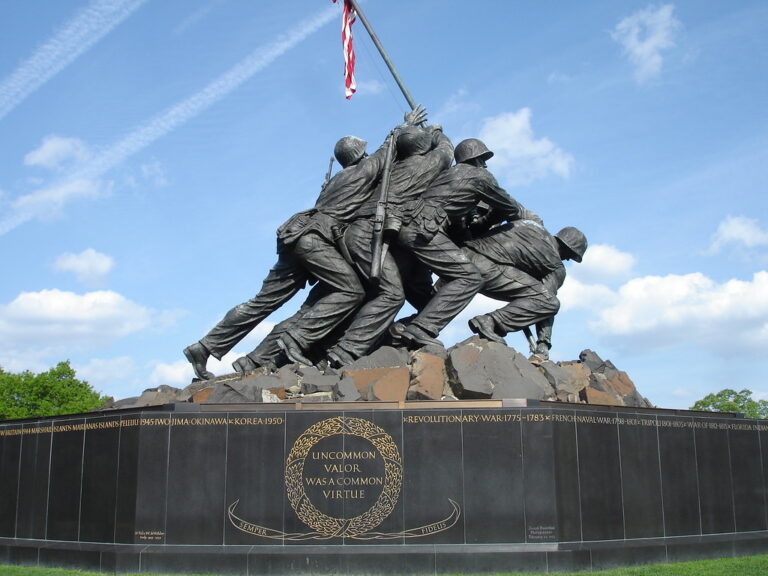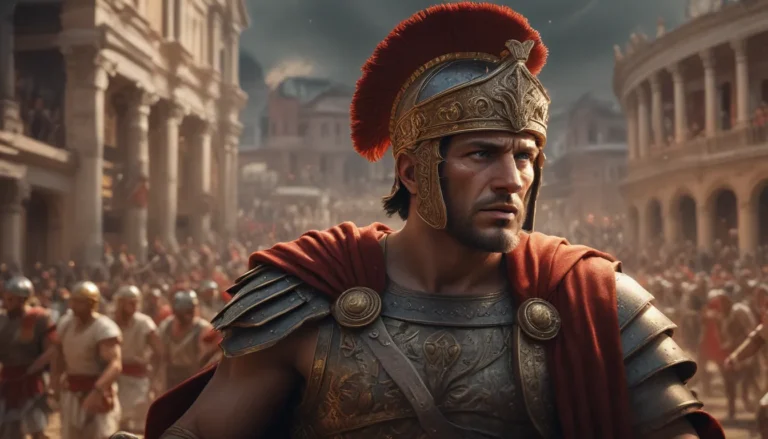The images in our articles may not match the content exactly. They are used to grab your attention, not to show the exact details in the text. The images complement the text but do not replace it.
Have you ever pondered the enduring impact of a war fought over 170 years ago on the borders and relationships between two vibrant nations? The Mexican-American War stands as a compelling chapter in history that reshaped maps and destinies, leaving behind a legacy that continues to influence present-day relations. This conflict, filled with tales of valor, strategy, and unforeseen outcomes, harbors a trove of captivating facts that shed light on the shared history between Mexico and the United States. Prepare to be enthralled by the 28 most astonishing tidbits from this historical showdown, offering a deeper insight into how past conflicts resonate in the present.
Unpacking the Mexican-American War
The Mexican-American War, spanning from 1846 to 1848, stands as a pivotal event that left indelible marks on both Mexico and the United States, reshaping territorial boundaries and leaving lasting effects.
- Origins of the Conflict: The war stemmed from the U.S. annexation of Texas in 1845, following Texas’ declaration of independence from Mexico in 1836, which Mexico refused to acknowledge.
- Manifest Destiny: The idea of Manifest Destiny, the belief that the U.S. was destined to expand across the continent, fueled the annexation of Texas and the push for further expansion into Mexican territories.
Turning Points: Battles and Strategies
Several key battles during the Mexican-American War shaped its trajectory.
- Battle of Palo Alto: Marking the war’s onset on May 8, 1846, U.S. forces under General Zachary Taylor triumphed over Mexican forces near Brownsville, Texas.
- Siege of Veracruz: A crucial amphibious operation led by General Winfield Scott in 1847, capturing Veracruz opened the path for American forces to move towards Mexico City.
- Capture of Mexico City: In September 1847, General Scott’s troops seized Mexico City, effectively concluding major combat operations and paving the way for peace negotiations.
Impact on Politics and Society
The Mexican-American War left a profound political and social imprint on both nations involved.
- Treaty of Guadalupe Hidalgo: Signed on February 2, 1848, this treaty led Mexico to cede vast territories, including present-day California, Nevada, Utah, Arizona, New Mexico, Colorado, Wyoming, and Texas, to the U.S.
- Impact on Slavery: The war reignited debates on slavery expansion, contributing to rising tensions that culminated in the American Civil War.
- Mexican Perspective: Viewed in Mexico as a tragic loss and a symbol of American aggression, the war sparked national introspection and reforms aimed at fortifying the country.
Figures of Significance
Various personalities played pivotal roles in influencing the outcomes and legacy of the Mexican-American War.
- President James K. Polk: As a staunch expansionist, Polk’s presidency is closely linked with the war, although he faces criticism for instigating the conflict to seize additional territory.
- General Antonio López de Santa Anna: A prominent Mexican military figure who led forces during the war, albeit unable to prevent territorial losses.
- General Zachary Taylor: Celebrated as a war hero, Taylor’s military triumphs propelled him to win the presidential election in 1848.
Cultural and Economic Transformations
The aftermath of the war brought enduring cultural and economic shifts to both nations.
- Economic Opportunities: Newly acquired territories presented abundant resources, creating fresh economic prospects for American settlers and entrepreneurs.
- Cultural Fusion: The amalgamation of American and Mexican cultures in these territories gave rise to unique expressions in food, music, and language.
- Veterans’ Influence: Many war veterans went on to play significant roles in the American Civil War, leveraging their experience from the Mexican-American conflict.
Legacy and Remembrance
The legacy of the Mexican-American War is intricate, influencing historical narratives and national identities on multiple fronts.
- U.S. Expansion: The war significantly broadened the U.S. territory, aligning with the Manifest Destiny vision held by many Americans.
- Mexican Losses: Mexico’s relinquishment of nearly half its territory reshaped its national identity and historical memory.
- Historical Reflection: Contemporary historians reassess the war, pondering its implications on civil rights, boundaries, and global relations.
- Educational Significance: Studied in both nations, interpretations of the war vary, reflecting distinct national perspectives.
- Monuments and Memorials: Memorials across the U.S. and Mexico commemorate the conflict and its participants, serving as poignant reminders of this transformative era.
- Literature and Art: The war inspired a breadth of literary and artistic works, reflecting on its human toll and broader consequences.
- Border Disputes: Despite the war’s conclusion, border issues between the U.S. and Mexico persisted, necessitating ongoing negotiations.
- Cultural Sites: Preserved battlefields and historical sites from the war serve as valuable cultural heritage locations, attracting history enthusiasts.
- Educational Resources: Abundant resources, including books, documentaries, and online materials, offer insights into the war’s causes and outcomes.
Unveiling History’s Layers
Delving into the Mexican-American War reveals a tapestry of complexity, conflict, and transformation that reshaped not only two nations but the entire North American landscape. Beyond mere battle sequences, this war symbolizes a pivotal juncture that expanded the U.S. and redefined Mexico’s future. Unraveling these 28 facts provides a clearer understanding of the motives, repercussions, and human narratives interwoven in this historical event. As we contemplate this epoch, it becomes evident that history transcends dates and figures, embodying the interconnected decisions, cultures, and individuals that continue shaping our world today.
Conclusion: A Journey Through History
The Mexican-American War epitomizes a chapter in history that resonates with enduring consequences, shaping the intertwined fates of Mexico and the United States. By unveiling the layers of conflict, legacy, and remembrance, we gain profound insights into the complexities of this transformative era. As we navigate through the past, present, and future, let us remember that history is not just a record of events but a testament to the intricate tapestry that binds nations and people across time. Embrace the lessons from the Mexican-American War as we forge ahead, mindful of the profound impact historical conflicts can have on our shared destinies.
Did you find this exploration enlightening?
At the core of our mission is the commitment to delivering informative and engaging content that enriches your understanding of history. Each fact we share is contributed by individuals like you, ensuring a diverse range of insights and knowledge. Our meticulous editorial process guarantees the accuracy and reliability of the information we provide, offering you a trustworthy resource to explore and learn. Trust in our dedication to quality and authenticity as you embark on a journey of discovery with us.






